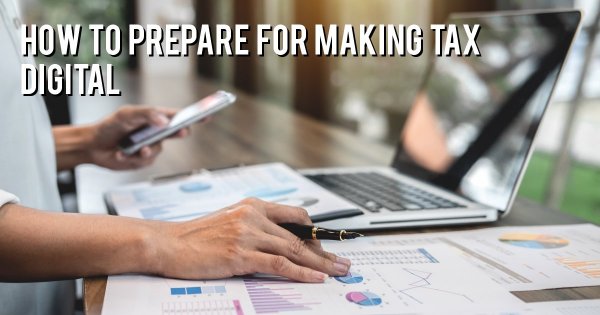HMRC is phasing in its landmark Making Tax Digital (MTD) regime, which will ultimately require taxpayers to move to a fully digital tax system. Is your business prepared?
Chris Wallace, Managing Director of Visionary Accountants, St Albans, Hertfordshire said:
'Whatever the size of your business there is a time of great change ahead and the team at Visionary Accountants is on hand to help with the challenges. Even though the income tax requirements of the Making Tax Digital for Business programme have been delayed, the government is still fully committed to its implementation. All businesses will be affected by Making Tax Digital and will need to keep digital records soon. We recommend you read our article and then contact a member of the Visionary Accountants team on 01727 730550. We offer a free initial consultation to discuss how your business should prepare for MTD and we can discuss how MTD will impact your VAT payments.'
When will your business have to comply with Making Tax Digital and keep digital records?
In 2017, HMRC announced the postponement of MTD for income tax until ‘2020 at the earliest’. MTD for VAT will be implemented in April 2019.
Under the MTD regulations, businesses with taxable turnover above the VAT threshold (currently £85,000) must keep digital records for VAT purposes and provide their VAT return information to HMRC using ‘functional compatible software.'
For most businesses, compliance with the regulations is mandated for VAT return periods beginning on or after 1 April 2019. However, MTD for VAT for some ‘more complex’ businesses has been deferred until 1 October 2019. This deferral applies to: trusts; not for profit organisations not set up as companies; VAT divisions; VAT groups; public sector entities such as government departments and NHS Trusts, which have to provide additional information on their VAT return; local authorities; public corporations; traders based overseas; those required to make payments on account and annual accounting scheme users.
MTD for VAT guidance
HMRC has published VAT Notice 700/22: Making Tax Digital for VAT. The notice defines ‘functional compatible software’ and details the transaction-level data that needs to be recorded and retained within the software. Parts of the notice have force of law, and some businesses may find that a concession from keeping certain digital records may apply to them.
Software
Under the new MTD rules, businesses will have to use ‘functional compatible software’. This means a ‘software program or set of compatible software programs which can connect to HMRC systems via an Application Programming Interface (API)’. This must be capable of:
- keeping records in digital form as specified by the new rules
- preserving digital records in digital form
- creating a VAT return from the digital records held in compatible software and submitting this data to HMRC digitally
- providing HMRC with VAT data on a voluntary basis
- receiving, via the API platform, information from HMRC to ascertain compliance. (It is as yet unclear what this means, but it may relate to HMRC’s ability to send compliance prompts and nudges).
How are the records to be kept?
Keeping digital records will not mean businesses are mandated to use digital invoices and receipts, but the actual recording of supplies made and received must be digital. Software will not be available from HMRC, but a list of software providers who have tested their software as part of the pilot has been published. The use of spreadsheets will be allowed, but they will have to be combined with add-on software to meet HMRC’s requirements.
Making Tax Digital Example
A business may use one piece of accounting software to record sales and purchases, transferring the totals into a spreadsheet to calculate the VAT return. The information is then sent to a piece of bridging software to submit the VAT return to HMRC. Here three pieces of software are involved. To qualify as functional compatible software, the links between them will have to be digital. The MTD for VAT notice explains that a digital link is one that involves no manual copying of data.
Income tax
Whilst digital record keeping for income tax purposes will not be mandated until 2020 at the earliest, it is now possible to take part in the MTD for income tax pilot. Participation is available for sole traders and unincorporated property businesses and will involve digital record keeping and making quarterly returns to HMRC.
Helping with the challenges of MTD
Any business not using digital accounting records will need to do so as soon as possible, and spreadsheet users may need bridging software or API-enabled spreadsheets to submit VAT returns. If you use a combination of different software systems and spreadsheets, decide how to have digital links in place by 2020, and how returns will be filed from 2019.
Many businesses are now able to join the MTD for VAT pilot run by HMRC which gives the opportunity for a test run before you are required to enter MTD for VAT. Joining the pilot will require you to obtain compatible software. If you already use software, you will need to check with your provider to see if it can be used for the pilot.
We would be happy to help you with any issues arising from MTD for VAT. We would also be able to undertake bookkeeping services for you to enable you to comply with the requirements. For more information contact a member of our St Albans accountancy team on 01727 730550.
